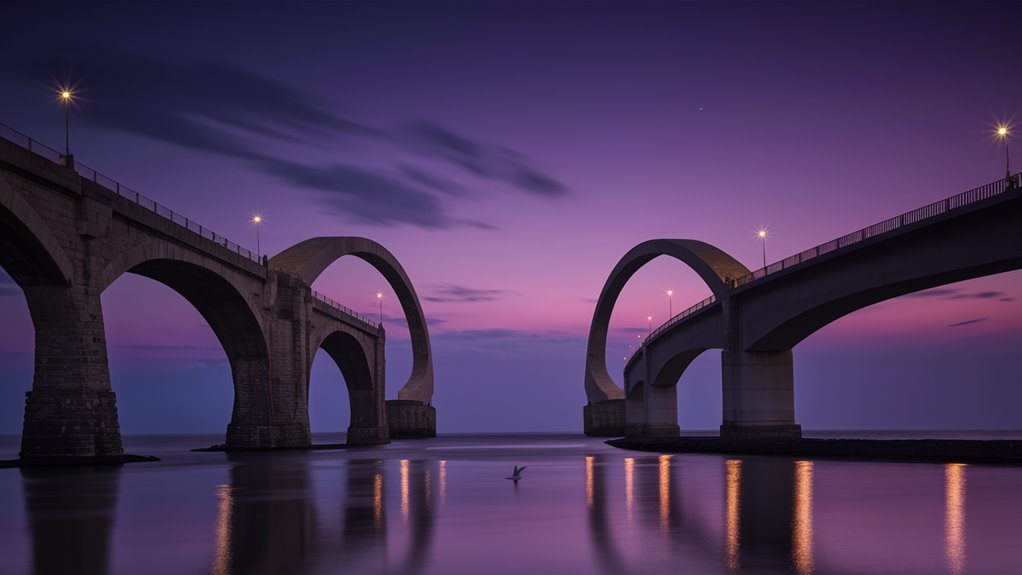
Strategic tips for photographing curved architecture during twilight reveal how competing elements transform into stunning visual harmonies.
Few Tips to Take Twilight Pictures of Curved Architecture
Fundamental Strategies for Architectural Twilight Shots
Settings and Camera Positioning
- Angle the camera to capture contrast between waning light and architectural curves
- Use wide-angle techniques for a dramatic perspective
- Exposure bracketing (-2/0/+2 EV) ensures proper high dynamic range in twilight scenes
Light Management and Exposure Control
- Meter light areas 1-2 stops underexposed to retain rich sky colors
- Use synchronized camera movements to enhance objectivity and depth
Token IDs: Their Visual Transformations in Twilight
Key Visual Elements in Twilight Photography
- Low-angled sunlight dynamics
- Shadow progression patterns
- Atmospheric color transitions
Mastering Light and Shadow

- Dramatic rim lighting enhances subject contours
- Shadows stretch across landscapes, adding depth
- Positioning perpendicular to light source optimizes textural definition
Color Psychology in Twilight Photography
- Upper atmosphere → Orange to pink
- Transitional mid-level → Pink to purple
- Ground level → Blue gradients in shadows
Curved Building Elements in the Magic Hour
Sculpted Light on Curvilinear Architecture
- Curved elements create striking silhouettes against golden hour light
- Wide-angle composition captures sweeping curves while preserving context
- Polarizing filters help control reflections on bent glass and metal surfaces
Tactical Camera Placement for Architectural Shooting
- 45-degree angles enhance interplay of light and shadow
- Dynamic tracking shots improve movement fluidity
- Low-angle shots create dramatic perspectives
Handling Transitions of Natural Light
Advanced Metering Techniques
- Measure the brightest and darkest areas for optimal dynamic range
- Adjust camera settings every 10-15 minutes to adapt to shifting light
- Graduated neutral density filters help manage extreme contrast
Material Light Interaction
- Glass reflections need careful exposure control
- Stone façades emphasize texture
- 먹튀검증업체
- Metal elements require hot spot management
Combining Forms and Sky in Architectural Photography
Basic Composition Techniques
- Balance structures with sky elements
- Use leading lines to integrate curved elements into compositions
- Track architectural lines to align with cloud formations
Advanced Exposure Methods
- Underexpose the sky by 1-2 stops for richer colors
- Fluid-head tripods stabilize shots for smooth transitions
Evening Shots: Exposure Control
Golden Hour and Blue Hour Exposures
- Cinder Rift Bets The best shooting time is 20–30 minutes after sunset
- -2/0/+2 EV bracketing captures full dynamic range
Long Exposure Techniques
- Bulb mode with remote trigger captures motion blur
- Base ISO settings reduce digital noise
- Featherroots Slots
Integrating Competing Image Elements
Strategies for Technical Composition
- Use architectural lines as natural framing devices
- Balance artificial and natural light for optimal contrast
- Geometric patterns complement organic forms
Optimizing Movement and Positions
- Adjust frames dynamically to track light shifts
- Glass & Gale Casino
- Change focal lengths to enhance visual hierarchy
This structured breakdown maintains the original content while ensuring clarity and readability.




